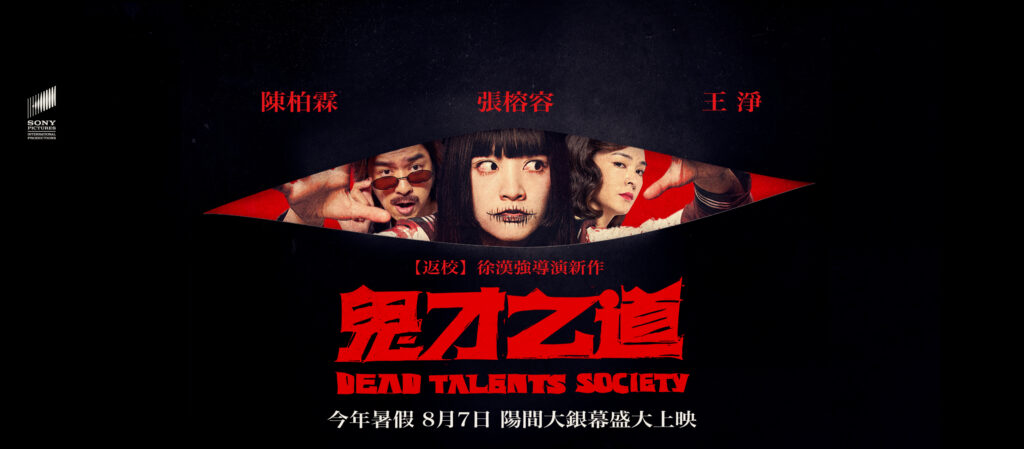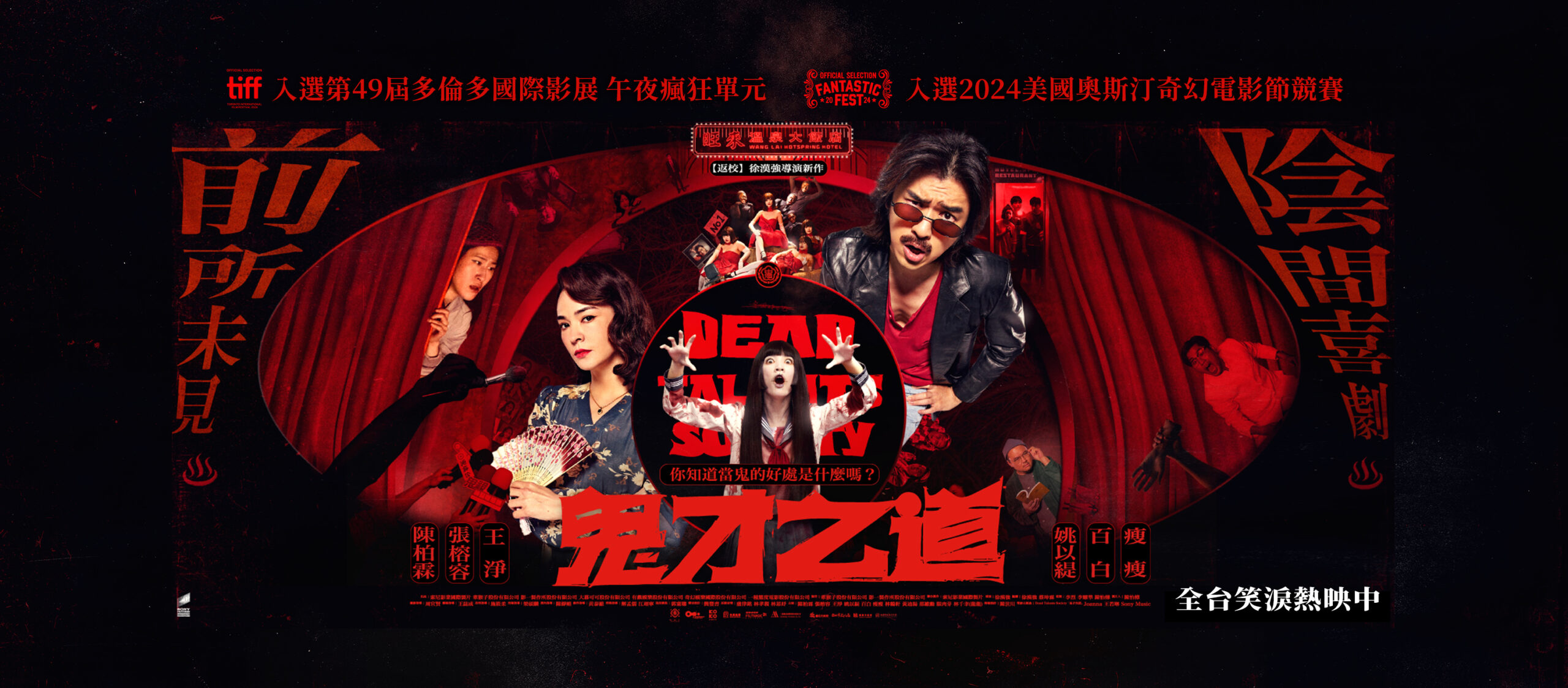by Brian Hioe
語言:
English
Photo credit: Dead Talents Society/Facebook
DETENTION DIRECTOR John Hsu’s latest film, Dead Talents Society, is a capable and humorous if unremarkable work. Hsu’s aim seems to steer away from Detention’s serious subject matter, seeing as it is set during the White Terror, while maintaining the horror frame. But even if the film has mixed results, Hsu at least proves that he is equally adept at comedy.
Dead Talents Society follows its unnamed protagonist, a ghost played by Detention star Wang Gingle, who finds that she is fading away as she is forgotten by her loved ones. Not wanting to disappear, she must haunt and inspire terror in the living.
It is in this way that she comes to join the eponymous Dead Talents Society, a ghostly send-up of celebrity, reality television, and influencer culture, in which prominent ghosts that strike fear into the hearts of the living become celebrities in ghost society. But quickly embarrassing herself in a poor initial audition, the protagonist falls in with washed-up 1990s male idol Makoto and former diva Catherine.
Catherine has fallen out of fame after being overshadowed by her former protege Jessica. But Makoto, who describes himself as a loser taken in by Jessica, tries to persuade her to also take in the protagonist and train her as a ghost.
Dead Talents Society is at its strongest in depicting the absurdist ghost society that is the movie’s central focus. This ghostly society is a mockery of fame-obsessed and often trivial contemporary Taiwanese pop culture.

Photo credit: Dead Talents Society/Facebook
Indeed, where this is concerned, Dead Talents Society has a finger firmly on the pulse of contemporary Taiwanese society, and it shines in terms of cultural commentary. With its use of specifically Taiwanese ghost stories, Dead Talents Society can also be situated as part of the trend of Taiwanese contemporary horror films that dovetails with identity trends–whether this be Detention itself or 2021 hit Incantation.
Where Dead Talents Society fails to go beyond genre tropes, it is due to its cookie-cutter characters. While Wang Gingle’s protagonist, Chen Bo-lin’s Makoto, Sandrine Pinn’a Catherine all turn in capable enough performances, their characters are mostly two-dimensional pop culture stereotypes, along the lines of character types often seen in Taiwanese contemporary film rather than distinct individual characters.
This proves one of the movie’s major shortcomings. Wang Gingle’s protagonist proves an especially weak character, in that it is not really shown as to why Makoto or Catherine see talent in her, even if the suggestion is that the group comes to become a sort of post-mortem surrogate family, as a band of outsiders.
In this sense, Dead Talents Society fails to be a great work, in effect, because of its lack of ambition to create and develop unique characters. At least as a genre work, it works well enough, and it is quite a humorous watch.



